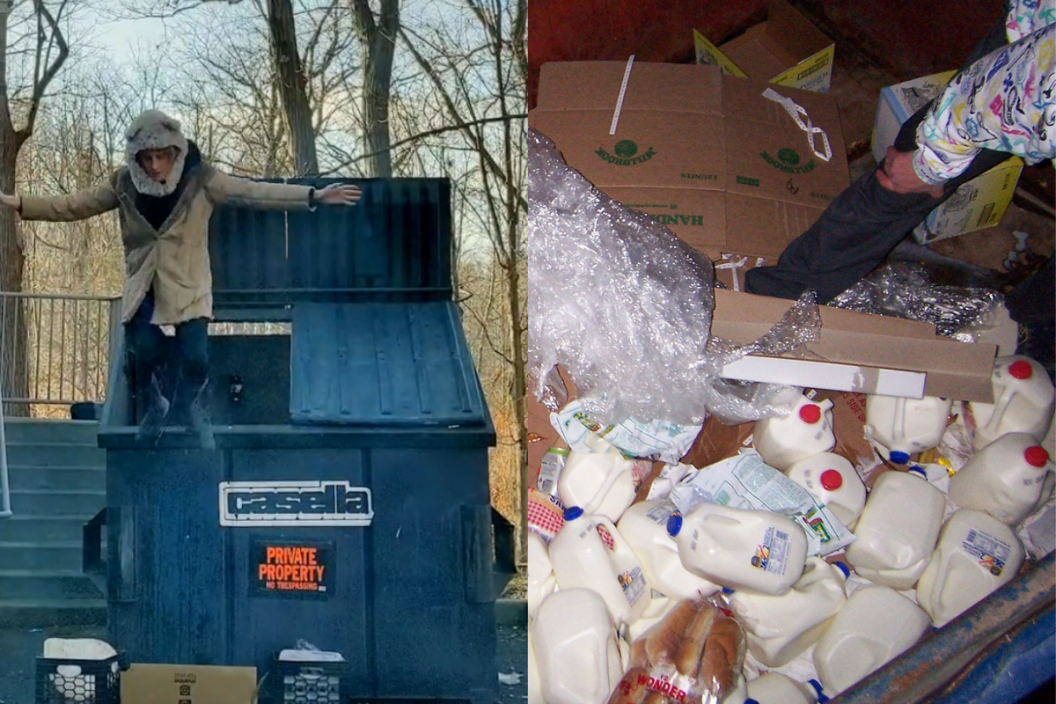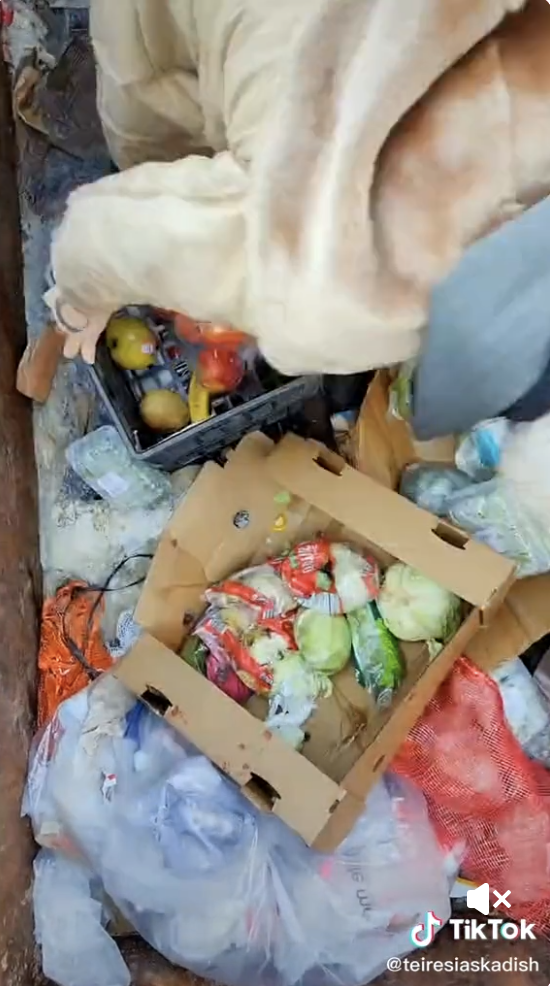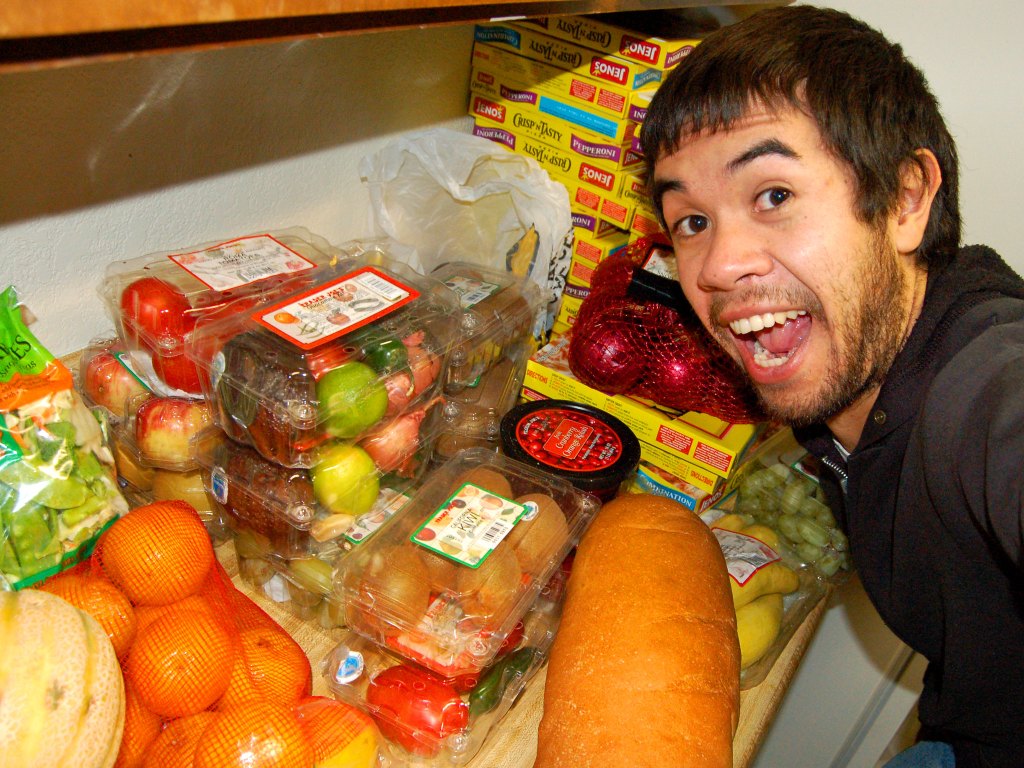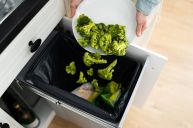The supply chain was one of the first economic casualties after the onslaught of stay-at-home orders at the start of the pandemic. Panicked citizens cleared out grocery stores and shelves sat empty for weeks, compounding the already tense situation with the added scarcity mindset. Because of this, dumpster diving is seeing a boom in popularity as individuals are grappling with how to address the waste issue themselves.
There around over 1.5 billion views on the #dumpsterdiving hashtag on Tik Tok, with hundreds of videos teaching people about the basics of the practice and showing off their hauls. Watch any video from popular personalities like @dumpsterdivingfreegan or @divingwithleigha and see their fully stocked pantries and collections of clothes, cleaning and hygiene products, house goods- just about anything that sold in stores that they obtained for free with a little planning.
https://www.tiktok.com/@dumpsterdivingfreegan/video/7040135279906360623?is_copy_url=1&is_from_webapp=v1
On the other side of our screens, however, social media feeds were loaded with videos of tankers full of milk dumped down the drain, entire fields of perfectly ripened vegetables plowed into the ground, and warehouses full of eggs smashed in heaps.
The USDA estimates that up to 40% of the United States' food supply is wasted every year, totaling over 108 billion pounds of food or the equivalent of $408 billion dollars in losses. While by no means a new phenomenon, the consequences of all this waste are compounded when pandemic-related stresses have put more families on the poverty line.
After social media exposed the amount of food wasted daily, the information crossed enough feeds to fuel a movement of people seeking individual solutions. There is a new community on Tik Tok diving headfirst into the food waste issue, one dumpster at a time.
Tik Tok Gives A Platform To Food Waste Warriors
@teiresiaskadish Grocery stores sell images, the food is incidental ? #dumpsterdiving #dumpster #mandala #foodart
"Grocery stores sell images, the food is incidental," popular dumpster diving Tik Toker Theresa Kadish writes in one video. The majority of food wasted in the United States is perfectly edible. Produce with small imperfections get tossed to make way for the most picture-perfect specimens, dented cans and creased packaging that does not affect the food inside replace all the keep up with the crisp, clean grocery store image we are accustomed to.
Then there is also the issue of planned excess. Waste is essentially built into the business model of supermarkets in order to keep the shelves looking full at all times, so extra stock is purchased with no true plan to use it. "The reality as a regional grocery manager is, if you see a store that has really low waste in its perishables, you are worried," the former president of Trader Joe's Doug Rauch revealed in an initiative to cut food waste. "If a store has low waste numbers, it can be a sign that they aren't fully in stock and that the customer experience is suffering."
Because of this, every big box store and chain restaurant in the country is likely to have a dumpster filled with overstock. There are Tik Toks of people dumpster diving from every store you can think of; Whole Foods, 5 Below, Starbucks. In any other context, the hauls these divers collect resemble an episode of Extreme Couponing- pristine piles of food that no one would question if it ever made it on the shelves.
Popular topics in the dumpster diving Tik Tok range from the basic hauls, to more in-depth how-to's breaking down the process for beginners. More experienced divers will share videos detailing what they ate in a day all from salvaged foods, or even the rules and courtesies of dumpster diving.
Is Dumpster Diving Illegal?
And yes, there are rules to dumpster diving. @Dumpsterdivingfreegan puts it best when they say that many of the rules are common sense; bring gloves and sanitizer, wear protective clothing, and don't just throw yourself into any random dumpster looking for treasure. Many divers will bring tools to help them dig from a safe distance, and if nothing is easily in reach they take the loss and move on to the next one.
More importantly, divers do retain a responsibility to share the surplus with other divers and those experiencing food insecurity. It is a high priority to leave dumpsters looking as untouched as possible as to not inconvenience the store workers, and to leave plenty behind for the other scavengers.
Many divers will attempt to donate as much of their haul as possible, which is typically the unexpired goods with damaged packaging. Responsible divers are aware of the risk of foodborne illnesses but are educated in how to test for spoilage and to test for storage temperature. While they are comfortable taking the risk on food they are consuming, most divers acknowledge that it is not responsible to share found food with others unknowingly.
Though dumpster diving is technically legal at the federal level, the rules can vary by location. Some cities like Seattle designate anything placed in dumpsters to be considered property of the city trash, and therefore anyone caught dumpster diving can be charged with stealing. But when we're faced with the consequences of all this waste piling up, the dedication to the cause is still respectable.
Still feeling the shockwaves of the supply chain issues, my local grocery store still has empty shelves bare of some essential ingredients. I cannot help but wonder if only all that waste could have kept these shelves stocked, but I do have a newfound interest in seeing if I can find anything in the back.
READ MORE: Insulated Grocery Bags Are Eco-Friendly & Keep Ice Cream Cold on the Way Home






